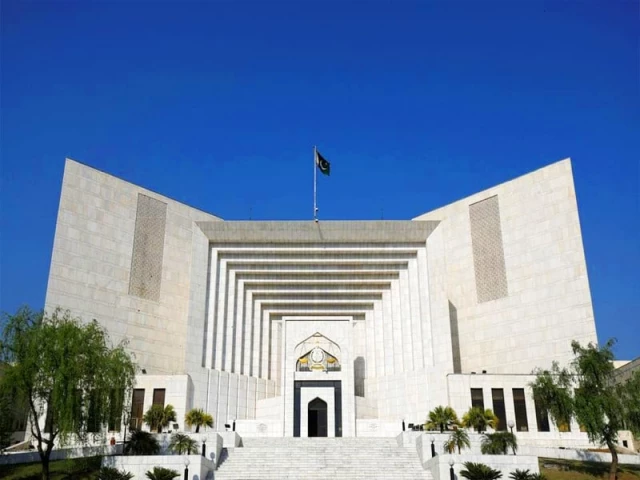Islamabad:
The Supreme Court ruled that judicial confessions should be manifestly voluntary, data from its free free will and intactedly by any form of coercion, incentive or psychological distress, because it has acquitted a death row for several legal reasons.
In a 30 -page verdict written by judge Athar Minallah, the Supreme Court observed that a confession, whether judicial or extrajudicial, must be manifestly voluntary, made in free will and without influence of all kinds, whether a threat, an incentive, a promise or even hope.
“The Court must be aware of the fact that, normally, no one would confess the commission of a crime because of its consequences and the possibility that the deep effects of the guard and exposed to physical and psychological distress and the trauma associated with the investigation and the custody of a rational thought of the person must generally be released from the extremely painful conditions”.
The court noted that, in rare cases, an accused can confess voluntarily due to real remorse. However, in situations where the accused remains in detention – in particular under the control of the police – the courts must make an in -depth examination.
“It becomes an even more expensive task of the court when the circumstances are such that there is a probability that the accused will be exposed to the influence of a person in authority, as being under the care of a police officer and confined in the locking of a police station.”
The bench said that police custody extended before a confession could erode its evidence. While a rapid registration of the judicial confession may indicate the volunteer, the delays, although not intrinsically fatal, justified judicial prudence.
“Although the delay in the recording of a judicial confession is not sufficient to affect its validity … A voluntary and true confession, however, does not require corroboration and it can also be sufficient for conviction but, as a rule of procedure and prudence, the Court requires requesting the corroboration in important details.”
Judge Minallah also underlined the need for more care when he treated vulnerable accused, in particular minors, who should ideally receive the support of a tutor before recording a confession.
“A court must show additional caution while recording a denominational declaration in the event of vulnerable classes such as minors. It is desirable, in their case, to provide them with advice / consultation, among other things, of a natural tutor.”
In addition, the judgment has reaffirmed the principle established that denominational declarations must be accepted or rejected in full, their inculpatory parties cannot be invoked while rejecting the exclusive parties.
Any procedural forfeiture, like not to remove the handcuffs before presenting the accused to a magistrate, could launch a serious doubt about the will of the confession.
“The handcuffs must have been removed before an accused was brought before a magistrate for having registered his confessional declaration … The fact of not mentioning this fact by a magistrate in his report or his deposition would increase doubts concerning the reliability of a confessional declaration.”
The court judged that even a delay by the magistrate does not need to be fatal, as long as the confession seems truthful and voluntary.
FIR registration delays
In a scathing observation, the SC also addressed the general and persistent delay in the registration of the FIR, in particular in the Sindh province, calling it a serious threat to the integrity of the criminal justice system.
“This case is only a point of the iceberg and it negatively reflects the status of the criminal justice system.”
The judgment stressed that the registration of the FIR and the surveys are fundamental executive functions, and any refusal or delay in the housing of the FIR SAPE the confidence of the public and opens ways for the falsification of evidence and the false accusations.
“The officer in charge of a police station does not have the power to refuse or delay his registration as obliged under article 154 of the CR.PC. A delay without convincing reason seriously affects the rights of the parties, the victim and the accused also.”
The court had summoned the inspector general of the police Sindh and the interim prosecutor general, who submitted a report dated June 2, 2025, recognizing the question and the detailed measures taken.
However, the court has found the reasons, such as cultural norms or uncontenable reconciliation preferences.




